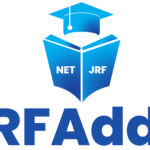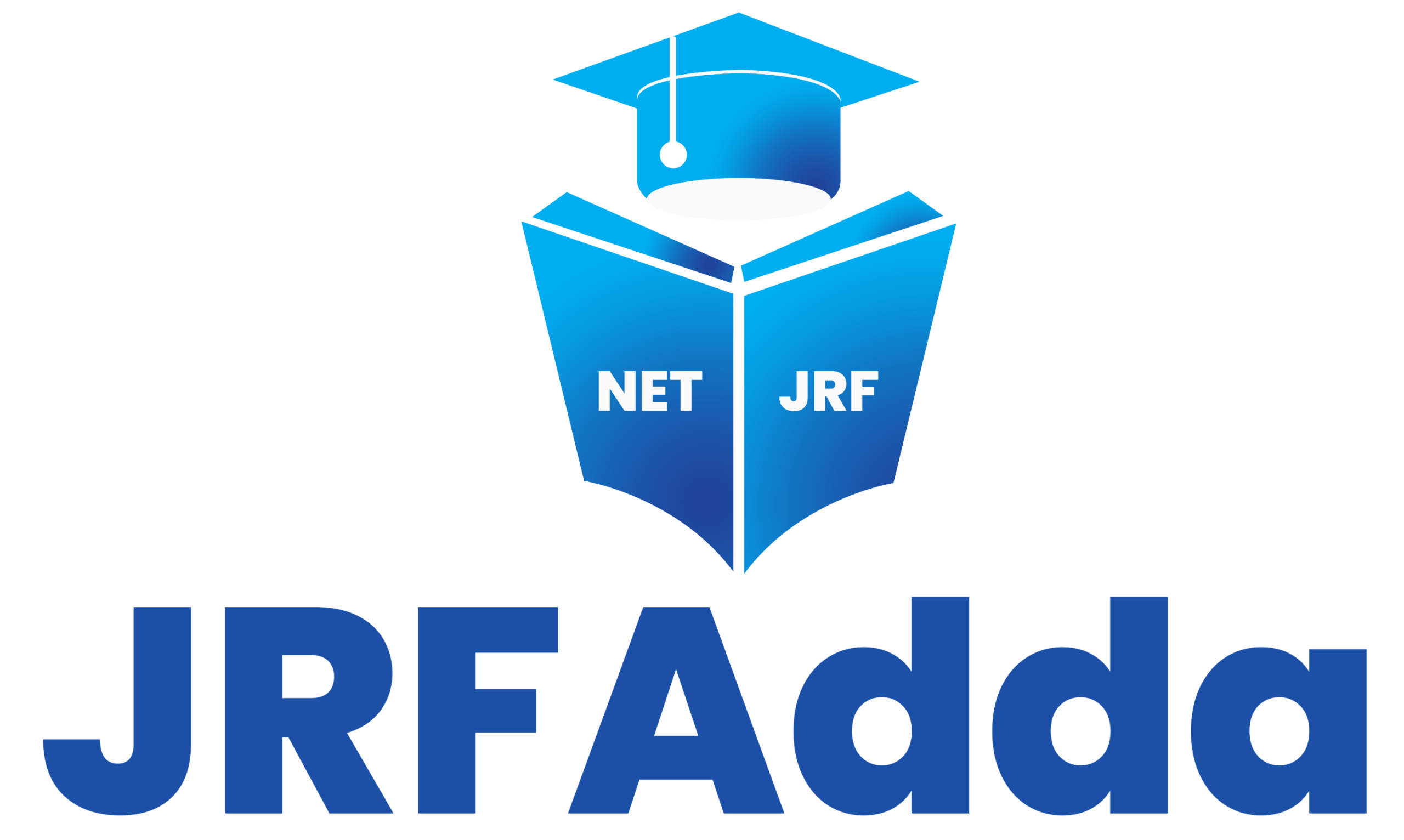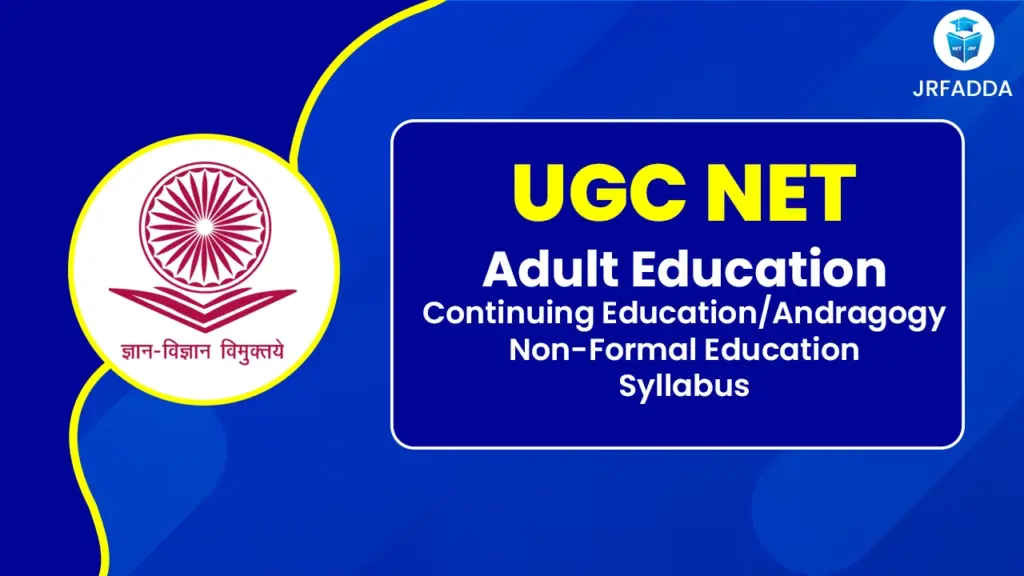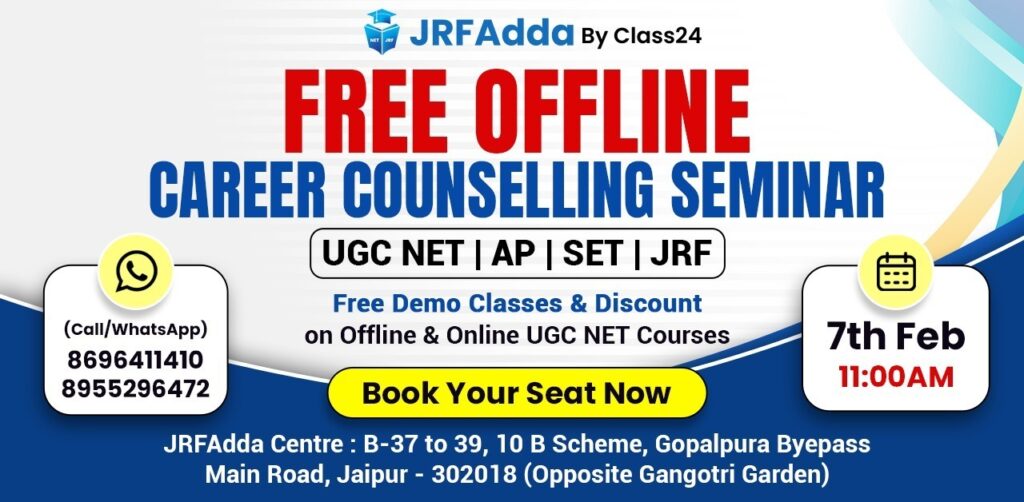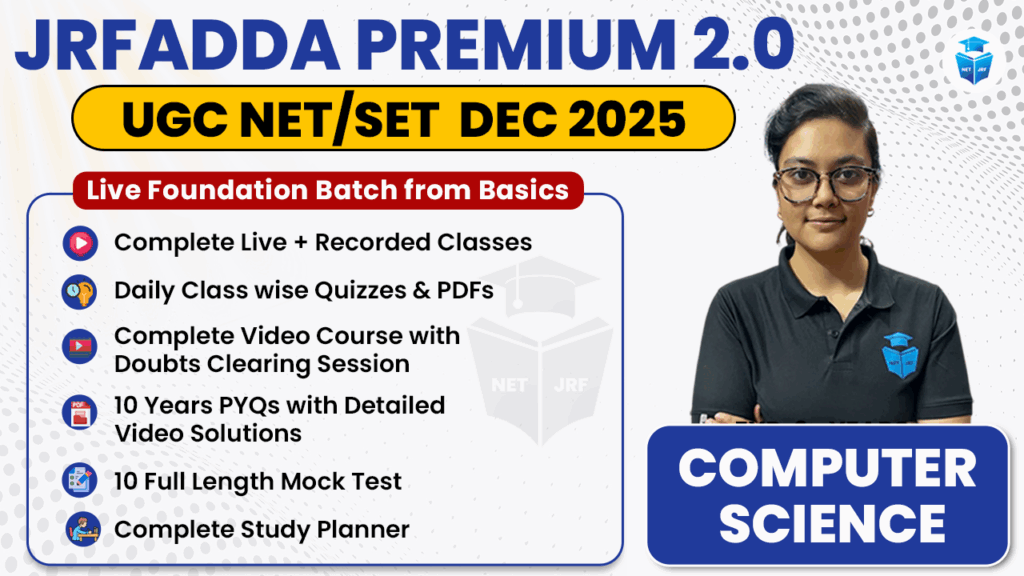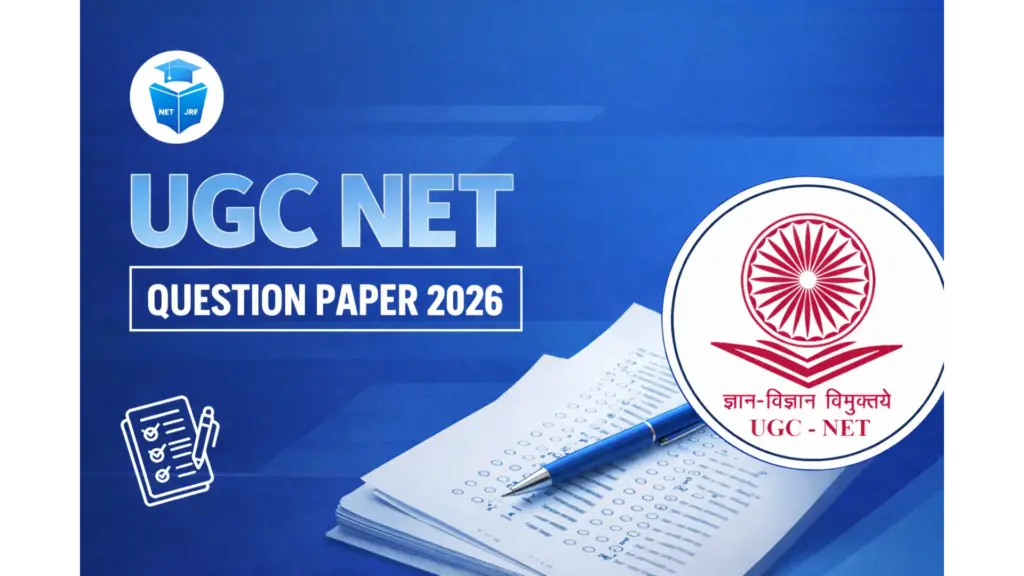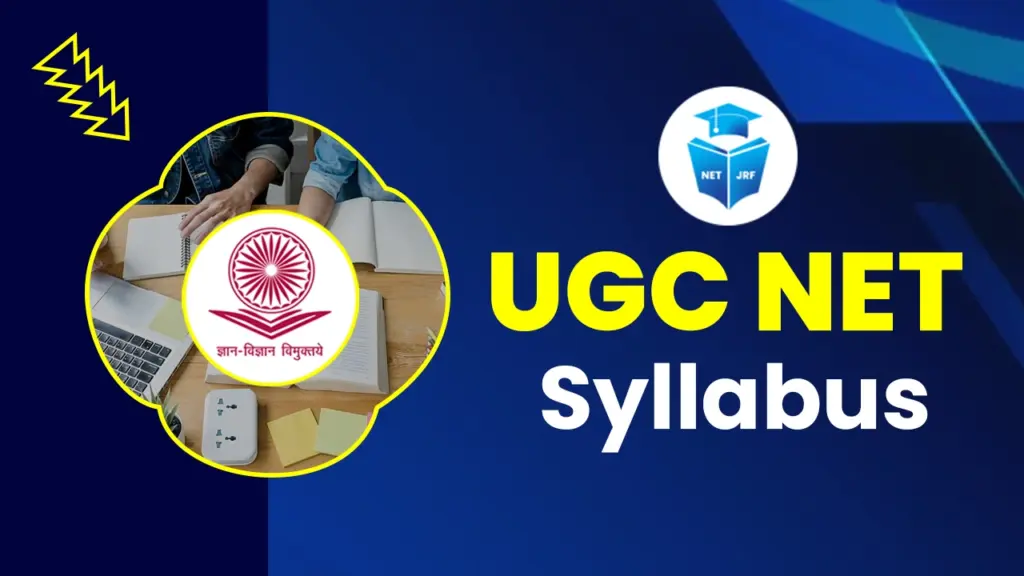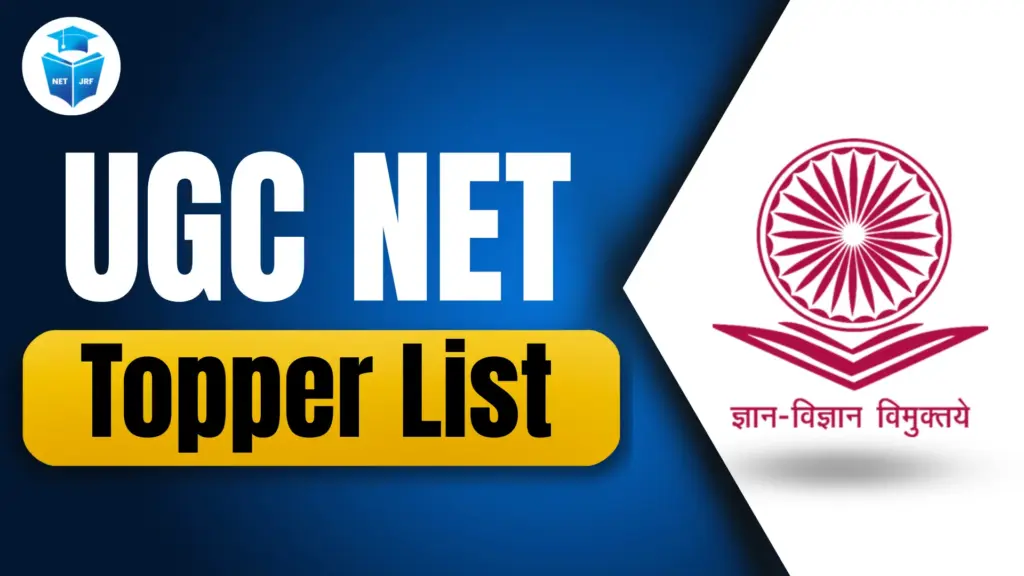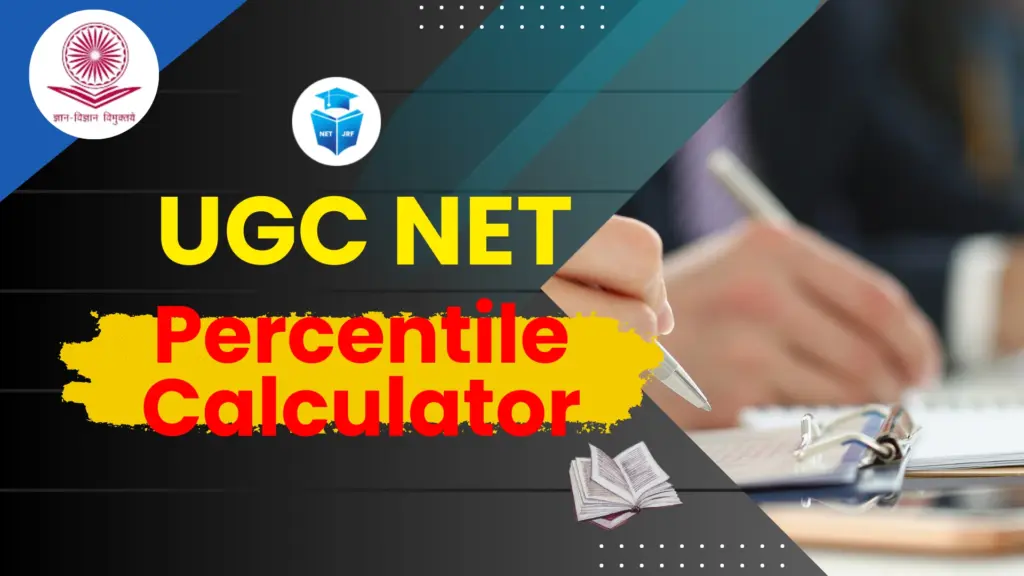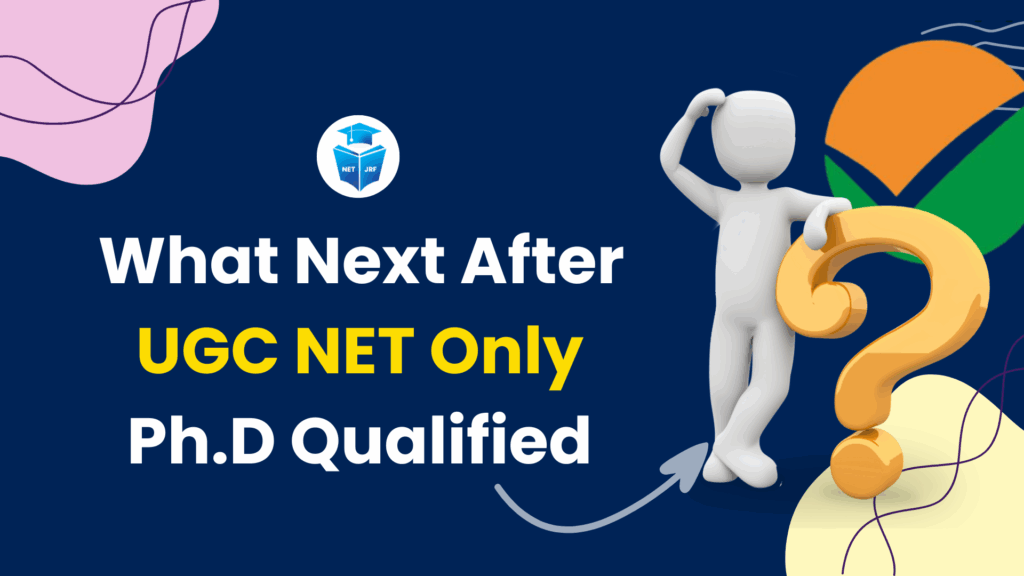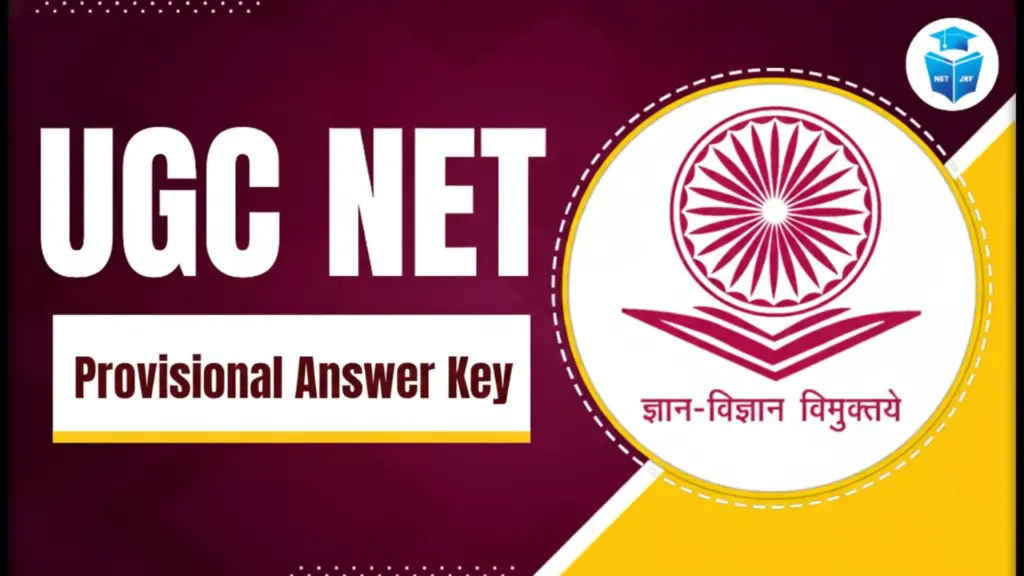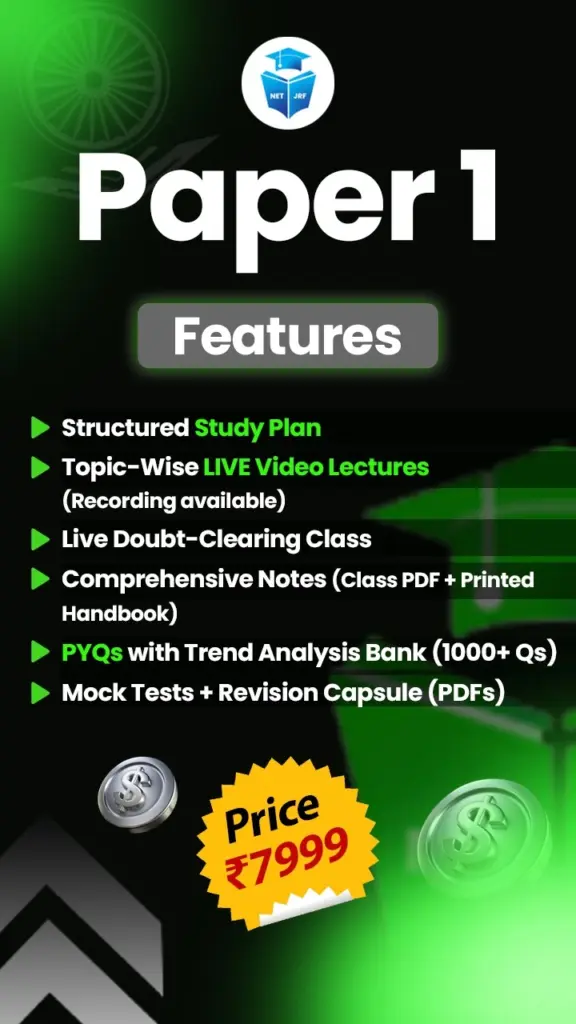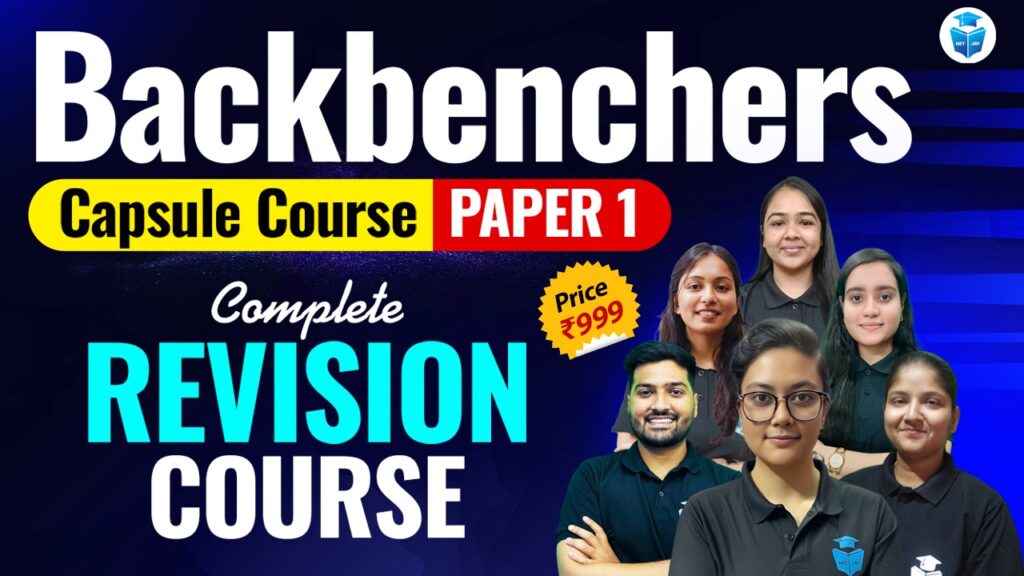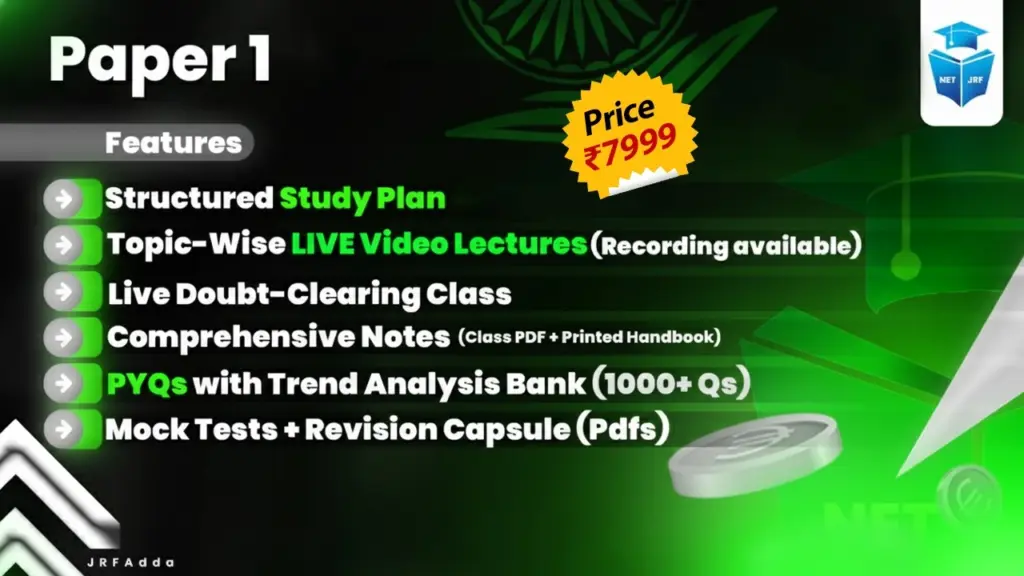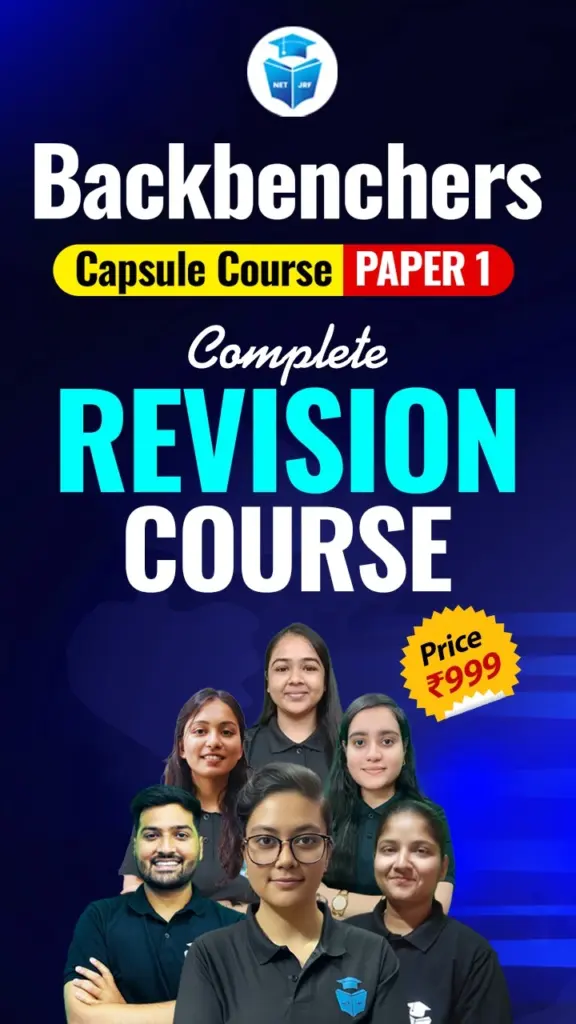UGC NET Adult Education Syllabus 2026 has been issued by the National Testing Agency (NTA) and covers a broad variety of topics related to education outside of formal schooling and lifelong learning. It is essential for candidates preparing for the UGC NET 2026 examination to understand the official syllabus for both Paper I and Paper II to qualify for roles such as Assistant Professor or Junior Research Fellow (JRF) in the field of adult education. The UGC NET Adult Education 2025 exam for december session conducted on 5 January 2026 in Shift 1.
This article provides a unit-by-unit analysis of the curriculum, a quick overview of the examination’s structure, and links to PDF downloads in English and Hindi.
Also Read: UGC NET Final Answer Key 2025
UGC NET Adult Education Exam 2026 Overview
The UGC NET Adult Education/Continuing Education/Andragogy/Non-Formal Education Syllabus 2026 Exam is conducted to assess candidates for eligibility in teaching and research positions within higher education institutions across India. The examination is expected to be conducted between January 1 and January 19, 2026 (tentative), and it will be held in Computer-Based Test (CBT) mode. The exam is split into two papers—
Paper I: Tests general teaching and research aptitude
Paper II: Is subject-specific and focuses on adult education and related areas.
Outline of UGC NET Adult Education Exam 2025
| Features | Details |
| Name of Examination | UGC NET |
| Conducting Body | National Testing Agency (NTA) |
| Exam Level | National |
| Mode of Examination | Online (CBT) |
| Number of Papers | Paper I and Paper II |
| Subject Code | 46 (Adult Education) |
| Total Questions | 150 |
| Total Marks | 300 |
| Exam Duration | 3 Hours (No Break Between Papers) |
| Medium of Exam | English & Hindi |
| Exam Date | 5 January 2026 in shift 1 |
| Official Website | ugcnet.nta.ac.in |
Also Read: UGC NET Exam Pattern 2026 For Paper 1 & 2
UGC NET Syllabus 2026 Paper I PDF
UGC NET 2026 Paper I is bilingual and the same for all other subjects, irrespective of the postgraduate subject specialisation. The UGC NET Syllabus 2026 plays a vital role in helping the candidates get a comprehensive view of the complete curriculum. Therefore, it is of high importance that candidates must have the updated syllabus PDF with them to start their preparation. Ahead is the direct link provided for the UGC NET Syllabus 2025.
UGC NET Syllabus Paper I 2026 PDF
UGC NET Adult Education Syllabus 2026 Paper II PDF in English
UGC NET Adult Education Paper II is entirely subject-specific and focuses exclusively on topics related to the discipline. The UGC NET Adult Education Syllabus 2025 is available in both English and Hindi to ensure that candidates from all backgrounds can prepare without language barriers. Aspirants should download the latest syllabus PDF to plan their preparation effectively.
UGC NET Adult Education Syllabus 2026 Paper II PDF in English
UGC NET Adult Education Syllabus 2026 Paper II PDF in Hindi
For candidates who prefer to study in Hindi, the UGC NET Adult Education Syllabus 2025 PDF is also available in that language. As a result, candidates can approach their preparation with more assurance and confidence. Candidates are advised that they either visit the official UGC NET website or use the link below to download the Hindi PDF of the UGC NET Adult Education Syllabus 2025.
यूजीसी नेट प्रौढ़ शिक्षा पाठ्यक्रम 2026 PDF हिंदी में डाउनलोड करें
UGC NET Adult Education Syllabus 2025 Analysis
This national-level examination, the UGC NET Adult Education Exam 2025, is administered by NTA twice a year in two sessions. For applicants considering positions as Junior Research Fellows (JRF) or Assistant Professors in the fields of adult education, continuing education, and andragogy, it acts as a perfect platform. Candidates must pass the UGC NET Adult Education exam in order to be considered for these positions. Therefore, it is imperative that candidates fully comprehend the most recent syllabus in order to guarantee a well-organised and successful preparation.
UGC NET Syllabus 2025 Paper I
UGC NET Paper I is common across all subjects, and its main objective is to evaluate the candidate’s aptitude for teaching and research as well as their logical reasoning and general awareness skills. Ten units make up the syllabus for Paper I, each of which focuses on critical knowledge and skill areas that are necessary for future researchers and educators in any field, including adult education. These ten key units are as follows:
| Unit No. | Topic | Areas Covered |
| 1 | Teaching Aptitude | Nature, objectives, levels of teaching, learner characteristics, teaching methods, responsibilities, and aids
Feedback and formative & summative evaluation systems |
| 2 | Research Aptitude | Meaning and types of research, methods and steps in the research process, writing of thesis and article
Ethical issues, employing ICT in research, data collection tools, and techniques |
| 3 | Comprehension | Reading comprehension, understanding, analysing, and interpreting passages
Answering direct and inferential questions |
| 4 | Communication | Meaning and various types of communication, verbal and nonverbal communication, effective communication, its principles and barriers, classroom communication, and the application of ICT in communication |
| 5 | Mathematical Reasoning and Aptitude | Number & letter series, coding & decoding, basic numeracy, profit & loss, arithmetic, interest, discount |
| 6 | Logical Reasoning | Venn diagrams, syllogisms, analogies, statements and conclusions, arguments and assumptions, critical reasoning |
| 7 | Data Interpretation | Interpretation and analysis of data from graphs (line, bar), tables, and charts; basic statistical tools; quantitative data |
| 8 | Information and Communication Technology (ICT) | Implementation of ICT in education, using the internet and digital tools in education
ICT in teaching and learning, cloud computing, e-learning platforms, cybersecurity, and digital ethics |
| 9 | People, Development and Environment | Environmental issues, human-environment interaction, sustainable development, natural resources, social development indicators, renewable and non-renewable energy, environmental protection laws and policies |
| 10 | Higher Education System: Governance, Polity and Administration | History and development; structure and functions of higher education in India; policies, reforms, committees and commissions; value education; issues and challenges |
Also Read: UGC NET Result 2025
UGC NET Adult Education Syllabus 2026 Paper II (Subject Code: 46)
The purpose of the subject-specific UGC NET Adult Education Paper II syllabus is to evaluate the candidate’s thorough knowledge and proficiency in the areas of adult education, non-formal education, continuing education, and andragogy. There are 100 objective-style questions in this paper that cover both discipline-relevant theoretical ideas and real-world applications. The UGC NET Adult Education Syllabus 2025 Paper II covers ten key units, such as andragogy, lifelong learning, continuing education, theoretical and functional bases, social and developmental concerns, skill development, etc.
| Unit No. | Topics | Area Coverage |
| 1 | Adult, Continuing Education & Extension: Indian and Global Contexts | History and evolution of adult education in India and globally; Lifelong learning programs; Extension education as the third dimension; National Open School; Comparative studies; Global perspectives (Asian, Latin American, European, American); Key agencies involved. |
| 2 | Theoretical and Functional Base of Adult Education | Educational approaches (Liberal, Behaviouristic, etc.); Indian educational thinkers; Andragogy vs Pedagogy; Adult learning theories; Learning needs of diverse groups; Prior learning, professionalisation, values, and challenges in adult learning. |
| 3 | Alternate Learning Systems | Distance, autonomous, and online learning; ICT tools and platforms (MOOCs, Swayam, etc.); Digital India initiatives; Virtual learning; Guidance and counselling; Differentiated instruction in digital contexts. |
| 4 | Curriculum Planning and Teaching-Learning Materials | Curriculum theory, planning, and development; Learning material creation for neo-literates; evaluation mechanisms; teaching aids; agencies involved in material preparation (print and digital). |
| 5 | Human Resource Management in Lifelong Learning and Extension | Management principles; Programme planning; Job roles in university-community engagement; Training methodologies; Skill development through PPP, NGOs, and government; programme evaluation. |
| 6 | Communication for Social Development | Communication models and practices; ICT and traditional methods; Community participation; Development communication strategies; Role of various agencies (government, NGOs, etc.). |
| 7 | Social and Developmental Concerns | SDGs, MDGs; Issues of marginalization (women, disabled, elderly, etc.); Social justice, ethics, environment, disaster, health, and value-based education; Social mobility and inequality. |
| 8 | Vocational Education and Skill Development | Vocational training policies; Jan Shikshan Sansthans (JSS); Skilling programmes (Start-Up, Stand-Up, Make in India); Micro and mega-enterprises (e.g., SHGs, SEWA); Certification and entrepreneurship. |
| 9 | Research and Research Methods | Social science research methods; Quantitative and qualitative research; Research design and tools; Sampling and data sources; documentation and dissemination; ethical issues; emerging research areas in adult education. |
| 10 | Lifelong Learning: The Futuristic Vision | Localised learning, network and option-based education; building learning societies; educational personalisation; institutional vs. non-institutional learning; policy innovation. |
Also Read: UGC NET Expected Cutoff 2025
UGC NET Adult Education Exam Pattern 2025
The UGC NET Adult Education Exam 2025 is conducted in online mode (CBT) and follows a two-paper structure. The total duration of the exam is 3 hours, during which both Paper I and Paper II are to be completed without any time interval. Each correct answer is worth 2 marks, and there is no negative marking, making it beneficial for candidates to attempt all questions confidently.
| Paper | Subject | No. of Questions | Total Marks | Duration | Negative Marking |
| Paper I | General Paper | 50 | 100 | 1 Hour | No |
| Paper II | Adult Education | 100 | 200 | 2 Hours | No |
| Total | – | 150 | 300 | 3 Hours | – |
Also Read: UGC NET Exam Pattern 2026 For Paper 1 & 2
Conclusion
The UGC NET Adult Education Syllabus 2025 offers candidates a complete guide to getting employment in adult education, continuing education, and non-formal learning systems. The syllabus is well-organised so that it can test both the understanding of concepts and the ability to use them in real life. To get ready for the exam in the best way possible, candidates need to keep up with official NTA notifications, download the most recent syllabus PDF, and plan their studies unit by unit. Consistent preparation, aligned with the syllabus, can greatly increase your chances of qualifying for this prestigious examination.
UGC NET Adult Education Syllabus 2025 FAQs
From where can I download the official PDF document of the UGC NET Adult Education Syllabus 2025?
You can download the official PDF document of the UGC NET Adult Education Syllabus 2025, either from the official UGC NET website or using the links provided above.
What are the main topics listed in Paper II of the UGC NET Adult Education syllabus?
Key topics include lifelong learning, community education, curriculum design for adults, non-formal education systems, and ICT in adult education.
What is the subject code for the UGC NET Adult Education 2025?
The subject code assigned by the official UGC NET website for the UGC NET Adult Education is 46.
Is there any penalty or negative marking for the wrong answers in the UGC NET Adult Education exam?
No, there is no negative marking for wrong or no answers, so candidates are encouraged to attempt all questions with confidence.
How many key units are there in Paper II of the UGC NET Adult Education Syllabus 2025?
There are 10 key units, covering both theoretical and applied aspects of adult education and continuing learning.
